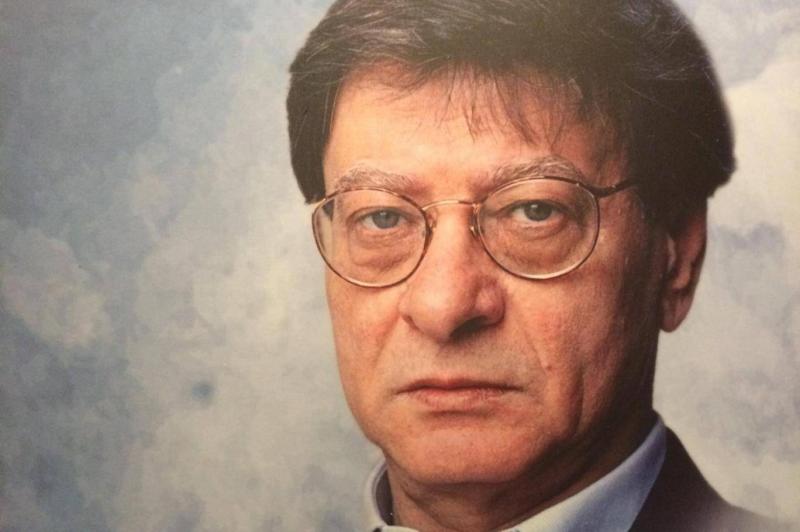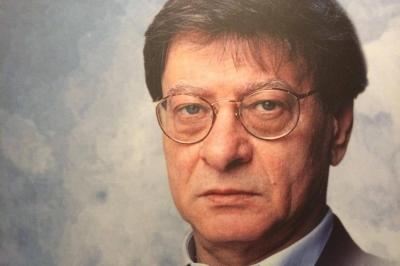The poet Mahmoud Darwish re-emerges after a 15-year absence through a book narrated by his Palestinian journalist friend Ziad Abd al-Fattah, who documents some of Darwish's secrets in life, poetry, and politics. Writing about Darwish is akin to stepping into fire; however, Abd al-Fattah, the author of "The Diamond Polisher," enters this adventure armed with his pen and their longstanding friendship, having accompanied Darwish through various cities during times of residency and displacement.
Abd al-Fattah claims that what is written in the book's pages "is known by no one but me." The author delves into some of the most intricate details of the life of the Palestinian poetry icon, especially during the siege of Beirut and its occupation by the Israeli army, when he was merely steps away from death or arrest. Abd al-Fattah quotes Darwish saying, "I know them well, from where they came with this cruelty and heinous killing that exceeds our capability and theirs."
The writer analyzes the reactions of the first poet of Palestine and the moments when poetry failed to describe what he heard—the whirring of planes and the sound of shells targeting what was known as "West Beirut." Abd al-Fattah summarizes the difficulty of those moments by saying, "One plane struck, followed by another; food caught in our fingers… perhaps in the vein." He records Darwish's words about those days: "I am not a demagogue nor am I dogmatic, but I see the road before them closing and not opening. No matter how far power stretches and loosens its reins, it cannot resolve a battle whose fuel is humanity."
However, in the days when Darwish could not move freely, he unleashed a vast imagination that led him to write one of his most splendid poems, "The Praise of High Shadow," in which he rose to one of his finest expressive forms about Beirut, its downfall, and the departure of Palestinian fighters, transforming it into "a cloud and a tent," addressing its dawn and dusk, saying, "Oh long dawn of Beirut, / hasten a little, / hasten so I may know: / whether I am alive or dead."
The book touches upon verses that are almost elegiac for a broken city when Darwish says, "I may lose this world... yes, / I may lose words and memories, / but I say now: no, / it is the last bullet, no, / it is what remains of the air of the earth, no, / it is what remains of the debris of the soul, no, / Beirut, no."
Abd al-Fattah mentions to Reuters that "the letters of these poems began to form in Beirut and Darwish completed them in Syria... 'The Praise of High Shadow' spread and reached Tunisia and the center of the Arab world" and beyond.
Among the secrets revealed is that Darwish "opposed leaving Beirut," explaining that "the decision for the Palestinians to leave was an American-Israeli and Arab decision as well." He recounts, "I was in the Fakahani area near the Shatila camp, and I asked him to leave with me as friends, and he said no. I do not leave; you are a fighter, you should leave. As for me, I am a poet, and the Lebanese welcome me and love me."
The prominent Palestinian journalist asserts that Darwish did not actually leave Beirut despite the Israelis entering it and remained "living there close to the American University... Ain Al-Mreisseh... on the eighth floor." Abd al-Fattah documents Darwish's relationship with the Palestinian Authority at the time under Yasser Arafat, confirming to Reuters that Darwish "loved Yasser Arafat... but did not agree with many of his policies," and he refused an offer from Arafat to appoint him as Minister of Culture upon returning to Ramallah.
The author asserts that Darwish declined to go with the Authority to Palestine at that time despite all the temptations, saying, "I will not go with you because this agreement (Oslo Accords) is like a stake, and the Palestinians will gain nothing." Contrary to popular belief, according to his friend's account, Darwish did not reside in Tunisia but rather visited it coming from Paris.
The book covers intricate details of Darwish's life as a poet and human being, highlighting his avoidance of media appearances, his intelligence, and his unique style of reciting poetry, in addition to his elegance in food and attire. Darwish formed a significant artistic duo with Lebanese artist Marcel Khalife, producing important works classified as national songs.
Abd al-Fattah reveals that Darwish was not fond of the phase in which he wrote poems like "Record I Am an Arab." He states, "People loved it while he did not. It was as if he wanted to rid himself of it, and the song immortalized it in the collective memory." It was Marcel Khalife who beautifully sang this poem.
The author, an octogenarian who was among the founders of the official Palestinian news agency (Wafa), satisfies the reader's curiosity by discussing Darwish's rituals of writing poetry, clarifying that "when he wanted to write poetry, he would seclude himself from people in his home."
The book, which spans 303 pages and is published by "Kutub Al-Shay," discusses the final chapter of Darwish's life during his illness and his travel to the United States for surgery, from which he emerged lifeless.




